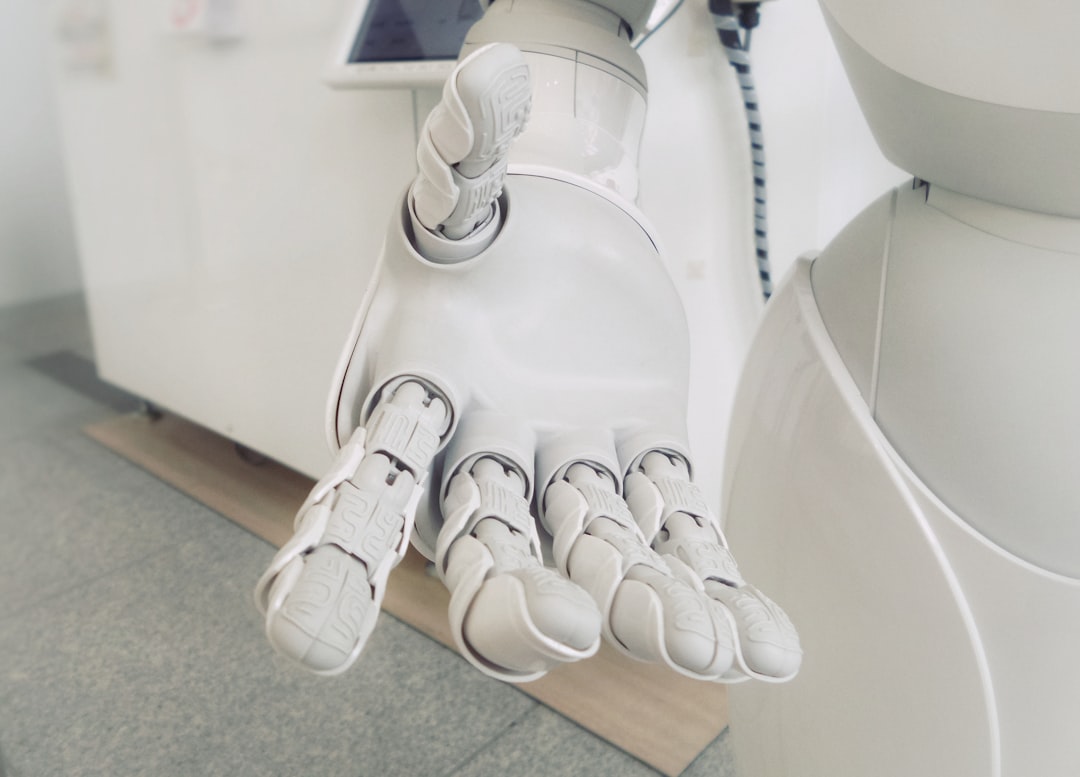Have you ever wondered what your job might look like in just a few short years? With Artificial Intelligence (AI) advancing at an unprecedented pace, it’s a question many of us are pondering. The truth is, the job market of 2030 will be significantly different from today, with AI acting as a powerful catalyst for change. It’s not just about robots taking over; it’s about a fundamental transformation that will redefine roles, demand new skills, and open up exciting, unforeseen opportunities. Let’s dive into the future and explore the AI-driven job map of 2030! 😊
The AI Revolution: A Shifting Landscape 🤔
The integration of AI into our daily lives and workplaces is no longer a futuristic concept; it’s a present reality. Reports from the World Economic Forum (WEF) indicate that by 2030, AI and other information processing technologies are expected to transform a staggering 86% of businesses globally. This isn’t just a minor adjustment; it’s a seismic shift that will impact nearly every sector and job function.
While some fear widespread job losses, the overall picture painted by recent analyses suggests a more nuanced outcome. The WEF’s Future of Jobs Report 2025 projects a net gain of 78 million jobs by 2030, with 170 million new roles emerging and 92 million existing jobs being displaced. This means that while certain tasks and roles will undoubtedly be automated, AI will also be a powerful engine for creating entirely new industries and positions.
Investment in Generative AI has increased eightfold since ChatGPT’s launch in November 2022, signaling a rapid acceleration in AI adoption and its transformative potential across industries.
Jobs at Risk: Automation and Redundancy 📊
It’s no secret that AI excels at tasks that are repetitive, rule-based, and involve large-scale data processing. Consequently, jobs heavily reliant on these functions are most susceptible to automation. Studies suggest that by 2030, up to 30% of current U.S. jobs could be fully automated, with 60% seeing significant task-level changes due to AI integration. Goldman Sachs estimates that AI could displace 6-7% of the U.S. workforce if widely adopted, though this impact is expected to be transitory.
Roles such as data entry clerks, cashiers, telemarketers, and customer service representatives are already seeing significant shifts as AI-powered systems take over. Even white-collar jobs like entry to mid-level accountants, auditors, and administrative assistants are facing automation of routine tasks. The legal profession is also feeling the impact, with AI tools automating document analysis and legal research, potentially reducing the need for paralegals and legal assistants.
Job Categories Most Susceptible to AI Automation by 2030
| Category | Examples of Roles | Reason for Vulnerability |
|---|---|---|
| Administrative & Clerical | Data Entry Clerks, Administrative Assistants, Bookkeepers, Payroll Clerks | Repetitive tasks, data processing, scheduling, record-keeping. |
| Customer Service | Call Center Agents, Telemarketers, Customer Service Representatives | Standardized interactions, chatbot capabilities, automated responses. |
| Transportation | Truck Drivers, Taxi Drivers | Advancements in autonomous vehicle technology. |
| Manufacturing & Assembly | Assembly Line Workers, Butchers | Robotics and automation of physical, repetitive tasks. |
While AI may not completely eliminate these jobs, it will significantly alter the tasks involved, requiring workers to adapt and acquire new skills to remain relevant. The pace of skill change in AI-exposed jobs is 66% faster than in other jobs.
Key Checkpoints: What to Remember! 📌
You’ve made it this far! With so much information, it’s easy to forget the most crucial points. Let’s quickly recap the three key takeaways you should remember:
-
✅
AI is a Job Transformer, Not Just a Job Killer.
While 92 million jobs may be displaced by 2030, a significant 170 million new roles are expected to emerge, leading to a net gain of 78 million jobs globally. -
✅
Repetitive Tasks are Most Vulnerable.
Jobs involving routine data processing and standardized interactions are at higher risk of automation, requiring workers in these fields to proactively upskill. -
✅
Upskilling is Non-Negotiable.
Nearly 40% of current job skills will change by 2030, making continuous learning and skill development essential for career longevity.
The Rise of New Roles: AI as a Job Creator 👩💼👨💻
While some jobs face displacement, AI is simultaneously fueling the creation of entirely new roles and expanding existing ones. The demand for AI and Machine Learning Specialists, Data Scientists, Big Data Specialists, and Cybersecurity Analysts is skyrocketing. These roles are crucial for developing, implementing, and managing the AI systems that are transforming businesses.
Beyond the tech sector, the “green transition” is also a significant job creator, with a surge in demand for Renewable Energy Engineers and Sustainability Consultants. Interestingly, frontline roles like farmworkers, delivery drivers, and construction workers are also expected to see growth, often augmented by AI tools. The care economy, including nursing professionals and social workers, is another area projected for expansion, highlighting the enduring value of human-centric roles.
Industries more exposed to AI are experiencing three times higher growth in revenue per worker, and wages are rising twice as fast in these sectors, indicating the economic benefits of embracing AI.
Navigating the Future: Skills for the AI Era 📚
So, what does it take to thrive in this AI-driven future? The consensus is clear: a blend of technical proficiency and uniquely human skills will be paramount. The World Economic Forum emphasizes that 39% of workers’ core skills will change by 2030, making continuous learning essential.

Here are some of the critical skills that will define success in the AI era:
- Human-Centric Skills: Empathy, emotional intelligence, communication, leadership, creativity, and critical thinking are irreplaceable by AI. These “soft skills” enable us to negotiate, inspire, build trust, and understand the “why” behind data.
- AI Literacy & Prompt Engineering: You don’t need to be an AI engineer, but understanding how to effectively use AI tools and craft precise prompts will be a universal skill.
- Data Literacy: The ability to question, interpret, and communicate insights derived from AI tools is crucial.
- Adaptability & Lifelong Learning: With skills becoming outdated rapidly, a growth mindset and a commitment to continuous learning are vital for staying relevant.
- Complex Problem-Solving: AI can handle routine problems, but humans will be needed for complex issues requiring creativity and strategic thinking.
Case Study: Sarah’s Career Pivot 📝
- Situation: Sarah, a seasoned administrative assistant, noticed her routine tasks (scheduling, email management) were increasingly being handled by AI tools.
- Challenge: She feared her role would become obsolete by 2030.
Action Taken:
1) Sarah enrolled in online courses focusing on prompt engineering and data visualization, learning how to leverage AI tools for more strategic tasks.
2) She actively sought out projects that required her human-centric skills, such as coordinating complex team collaborations and resolving interpersonal conflicts.
Final Result:
– Sarah transitioned into a “Human-AI Collaboration Specialist” role, where she designs efficient workflows integrating AI tools and coaches colleagues on effective AI usage.
– Her deep understanding of human needs combined with her new AI literacy made her an invaluable asset, demonstrating how adapting skills can lead to new, high-value positions.
Sarah’s story illustrates that the future isn’t about competing with AI, but rather collaborating with it. By focusing on skills that complement AI’s strengths, individuals can carve out new and rewarding career paths.
Conclusion: The Evolving Workforce 📝
The job map of 2030 is undoubtedly being redrawn by the powerful hand of Artificial Intelligence. While concerns about job displacement are valid, the overwhelming evidence points to a future where AI acts as a co-pilot, augmenting human capabilities and creating a dynamic, evolving workforce. The key to navigating this transformation lies in proactive upskilling, embracing lifelong learning, and honing those uniquely human skills that AI cannot replicate.
The future of work isn’t a dystopian vision of machines replacing humans; it’s a collaborative landscape where human ingenuity, creativity, and empathy are more valuable than ever. So, let’s prepare, adapt, and look forward to the exciting opportunities that AI will bring to our careers. What are your thoughts on the AI-driven job market of 2030? Share your insights in the comments below! 😊
AI’s Impact on Jobs: Key Takeaways
Frequently Asked Questions ❓
